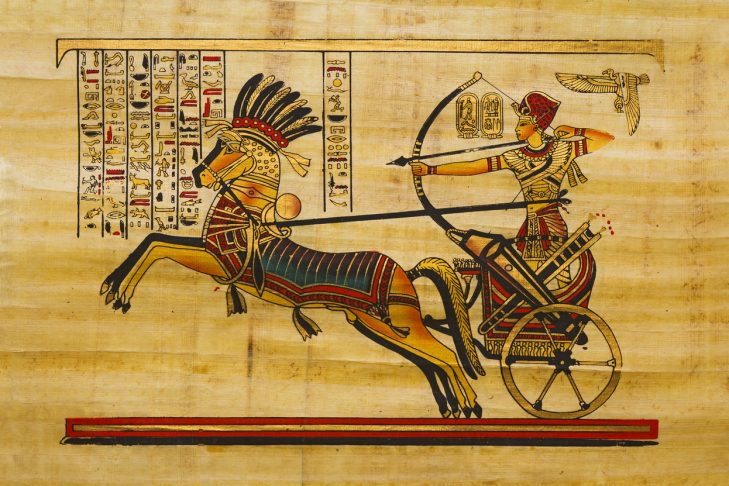Every week, as Shabbat begins, we sing the Friday night kiddush, which reminds of our exodus from Egypt—zecher litziat mitrayim—and of our freedom from slavery, persecution, and dark times.
We all know the story. Redemption from Egyptian slavery is the preeminent leitmotif of the Jewish religion, spawning Passover seders, numerous epic movies, and bespoke Haggadot for a few thousand years.
A little-known postscript to that happy story is that following the destruction of the First Temple, a whole lot of Jews, expelled from Jerusalem, ended up heading back to Egypt and resettling there. It is hard to fathom a more calamitous outcome than our ancestors returning to live in the land where their infant boys were once thrown to die in the Nile and where they were enslaved.
If you play some games with the phonics of the word Mitzrayim, you can easily convert the sounds to Metzer Yam—a phrase that means “isthmus.” This begs the obvious question as to why on earth we refer to Egypt as a narrow place when it’s well over a million square miles today and was probably a larger empire back then.
When Pharaoh gifted the Land of Goshen to the children of Jacob, it was not barren, desert, Egyptian land, nor was it the land that lined the Nile River. He granted to them the Land of Goshen, a fertile region on the Nile Delta squeezed onto the Isthmus of Suez.
This isthmus, a narrow land bridge that connected Africa to Asia on the western edge of the Sinai Peninsula, would later be the site of the Suez Canal, and of this famous photo.
When we sing, pray, acknowledge, and remind ourselves of our experience in Egypt, we refer back to the narrow spit of land we lived on, the narrow existence we had as slaves, and the thin margins that sustained us. Sure, we had it great in Goshen, but it was a flash in the plan—after a few generations, the persecution of Jews reverted back to the mean, and the good land that sustained us became a house of horrors.
Nothing encapsulates Jewish existence quite like this evergreen pattern; every so often, it actually goes well, until it doesn’t. The Hebrews in Goshen lived well for a few hundred years, and then we were forced into slavery. The kingdoms of David, Solomon, and the early kings comprised a little more than three centuries until the Asssyrians destroyed the Temple and we were sent into exile. Post-enlightenment European Jewry did OK until two-thirds of them went to the crematoriums. Modern Israel lasted for 75 whole years until the world descended again into an antisemitic fever dream.
In this generation, as in every one prior, we are accused of anything and everything under the sun. God-killers, well-poisoners, media-controllers, Black-Death-spreaders, indigenous-people-colonizers, baby-murderers, organ-stealers, market-manipulators, and more (and worse). The unending third-party revision of our history, the perpetual diminishment of our status, and our eternal othering at the hands of our enemies and murderers is as reliable as the rising and setting of the sun. It takes some serious mental gymnastics, a host of intellectual straw men, and then some to view the Jewish people as orchestrating 4,000 years of self-persecution and still somehow being the aggressors, and a trip all the way through the looking glass to view us, or Israel, as anything other than a massive underdog. Any attempt to fabricate any kind of philo-Semitic history of the world, or paper over the millennia of Jewish hatred, is nothing short of a treacherous fiction meant to deny us our history, present, and, yes, future, of fighting for our survival.
Mitzrayim is not just our yesterday, it is also our today and tomorrow; this is our everlasting heritage. Only in this world would 6 million Jews get sent to their deaths in the Holocaust, and 80 years later 25% of young people claim that it didn’t happen. After all, history doesn’t last forever, but antisemitism does.
The world tolerates us temporarily, and our struggle is eternal. We are always Yisra’el, wrestling not just with God, but with our very lives and right to live and practice as Jews. Our claim to simply be, and be left alone, is tenuous at best, always hanging by the edge of a knife.
This post has been contributed by a third party. The opinions, facts and any media content are presented solely by the author, and JewishBoston assumes no responsibility for them. Want to add your voice to the conversation? Publish your own post here. MORE



